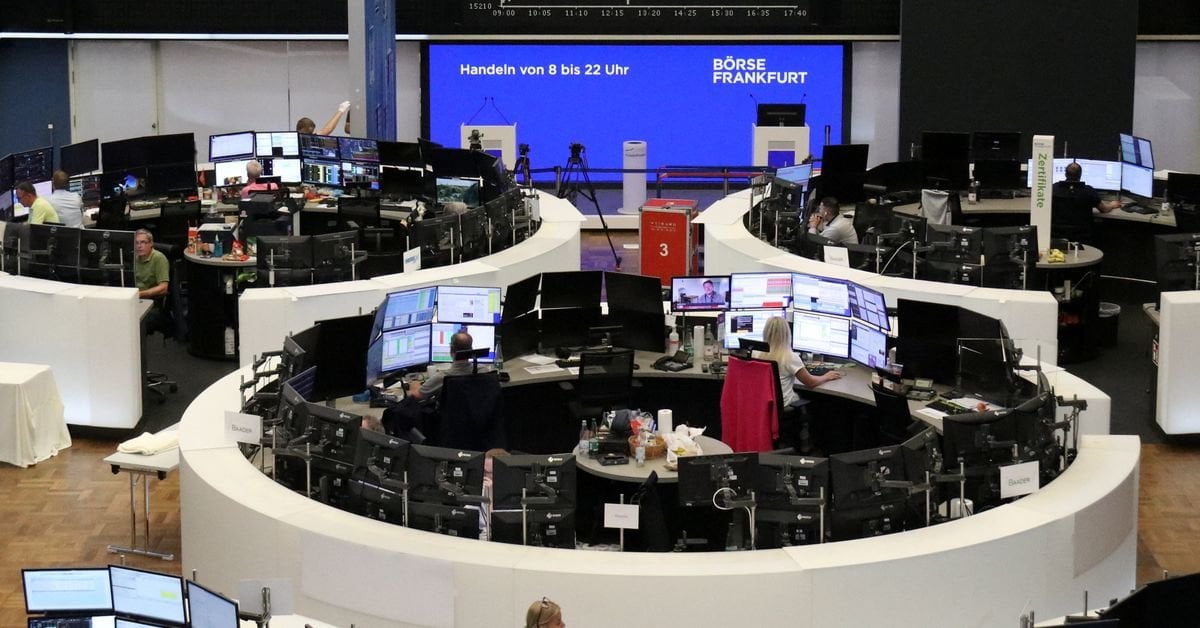China's Impact On BMW And Porsche Sales: More Than Just A Market Slowdown

Table of Contents
The Shifting Chinese Consumer Landscape
The Chinese automotive market is undergoing a dramatic transformation, driven by evolving consumer preferences. Understanding this shift is crucial for brands like BMW and Porsche to maintain their market share. The luxury car buyer in China is no longer solely focused on established foreign brands; they are increasingly discerning and demanding.
-
Increased demand for EVs and hybrid vehicles: Environmental concerns and government incentives are pushing Chinese consumers towards electric and hybrid options. This presents a significant challenge for BMW and Porsche, who need to rapidly expand their EV offerings to compete with domestic brands. The shift towards sustainable mobility is a key factor in China's impact on BMW and Porsche sales.
-
Preference for technologically advanced features: Chinese consumers expect cutting-edge technology in their vehicles, including autonomous driving capabilities, advanced driver-assistance systems (ADAS), and sophisticated infotainment systems. Falling behind in technological innovation directly impacts sales figures.
-
Growing importance of brand image and social status: While brand recognition remains important, the association of car ownership with social status is evolving. Younger generations are increasingly influenced by social media and digital marketing, demanding brands that align with their values and lifestyles. This necessitates a shift in marketing strategies for global luxury brands.
-
Rising competition from domestic Chinese EV brands: NIO, XPeng, BYD, and other domestic brands are aggressively challenging established players with competitive pricing, technologically advanced vehicles, and strong local brand recognition. This intensified competition is a major factor impacting BMW and Porsche's market share in China.
Supply Chain Disruptions and Geopolitical Factors
Beyond consumer trends, external factors significantly impact BMW and Porsche's performance in China. Global supply chain disruptions, trade tensions, and geopolitical uncertainty create instability and unpredictability.
-
Challenges in sourcing crucial components: The global chip shortage and other supply chain bottlenecks have hampered production and delivery schedules, impacting both sales and profitability.
-
Impact of trade disputes and tariffs: Trade tensions between China and other countries can lead to increased import costs and tariffs, reducing the competitiveness of imported luxury vehicles.
-
Geopolitical instability impacting investor confidence: Geopolitical risks and uncertainty can negatively influence investor sentiment and overall market stability, affecting investment in the Chinese automotive sector and impacting sales of luxury brands.
Government Regulations and Policies
The Chinese government plays a significant role in shaping the automotive market through various regulations and policies. These policies directly impact the profitability and market positioning of BMW and Porsche.
-
Stringent emission standards: China's increasingly stringent emission standards make it challenging for brands heavily reliant on traditional combustion engines to remain competitive. Meeting these standards requires significant investment in research and development.
-
Government subsidies and tax incentives favoring electric vehicle purchases: These incentives strongly encourage consumers to purchase EVs, creating a competitive advantage for domestic EV manufacturers and pressuring established brands to rapidly electrify their product lineups.
-
Regulations on data security and privacy: Regulations related to data security and privacy for connected cars have created complexities for foreign brands operating in China, requiring them to adapt their technological strategies and comply with local regulations.
The Rise of Domestic Competition
The emergence of strong domestic Chinese brands represents a considerable challenge for BMW and Porsche. These brands are not just offering lower prices; they are also rapidly improving in technology and brand appeal.
-
Competitive pricing strategies: Chinese brands are leveraging their cost advantages to offer competitive pricing, often undercutting established luxury brands.
-
Technological advancements in Chinese-made vehicles: Domestic brands are investing heavily in research and development, rapidly closing the technological gap with international competitors.
-
Targeted marketing campaigns: Chinese brands are effectively targeting specific consumer segments with tailored marketing campaigns that resonate deeply with local preferences and cultural nuances.
Conclusion
The impact of China on BMW and Porsche sales extends far beyond a simple market slowdown. The evolving consumer landscape, supply chain vulnerabilities, government regulations, and the rise of domestic competition all contribute to the complex challenges these luxury brands face in the Chinese market. Understanding these nuanced factors is crucial for future strategy and success. To stay informed about the ongoing developments impacting the luxury automotive market in China, and how BMW and Porsche are adapting, continue to follow our analyses on China's impact on BMW and Porsche sales.

Featured Posts
-
 Stock Investors Defy Gloom Bid Market Higher But At What Cost
Apr 22, 2025
Stock Investors Defy Gloom Bid Market Higher But At What Cost
Apr 22, 2025 -
 Collaboration Between Saudi Aramco And Byd Potential Breakthroughs In Ev Technology
Apr 22, 2025
Collaboration Between Saudi Aramco And Byd Potential Breakthroughs In Ev Technology
Apr 22, 2025 -
 Analyzing The Fallout Comparing The Public Impact Of Blue Origins Failure And Katy Perrys Challenges
Apr 22, 2025
Analyzing The Fallout Comparing The Public Impact Of Blue Origins Failure And Katy Perrys Challenges
Apr 22, 2025 -
 Blue Origin Launch Cancelled Vehicle Subsystem Issue Delays Mission
Apr 22, 2025
Blue Origin Launch Cancelled Vehicle Subsystem Issue Delays Mission
Apr 22, 2025 -
 Ohio Train Derailment Investigation Into Prolonged Toxic Chemical Presence In Buildings
Apr 22, 2025
Ohio Train Derailment Investigation Into Prolonged Toxic Chemical Presence In Buildings
Apr 22, 2025
